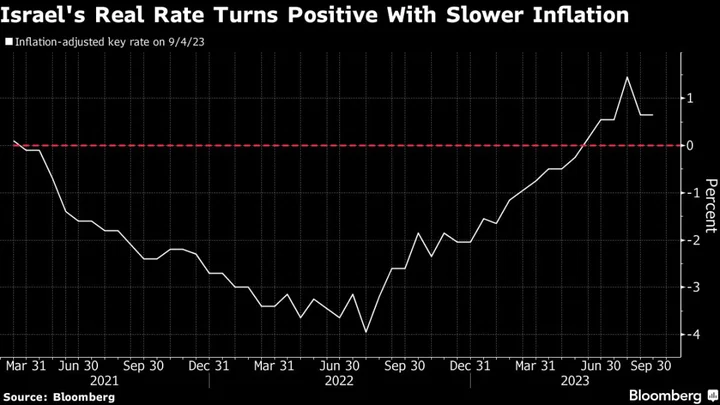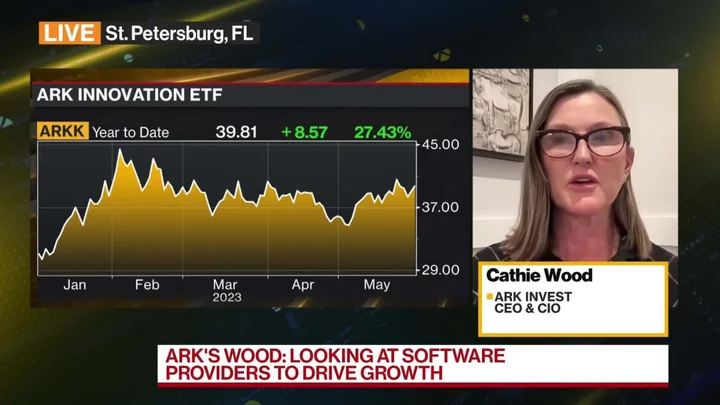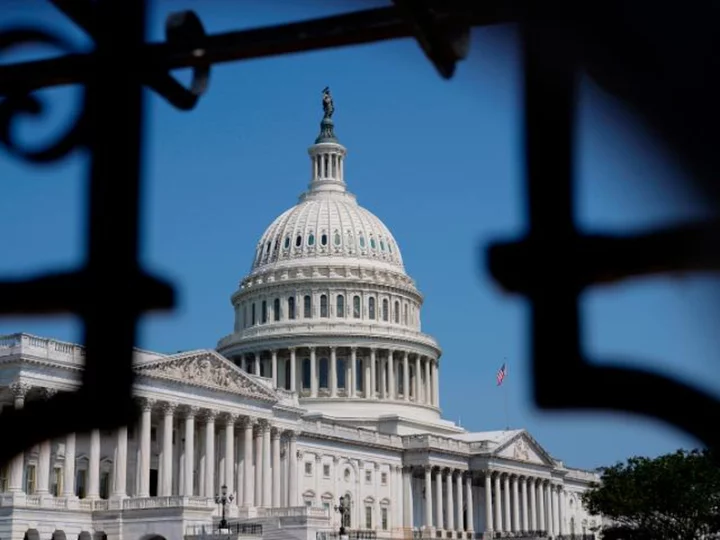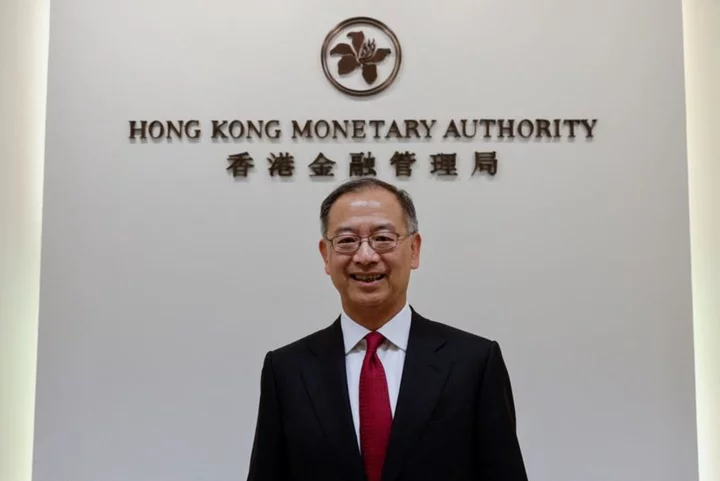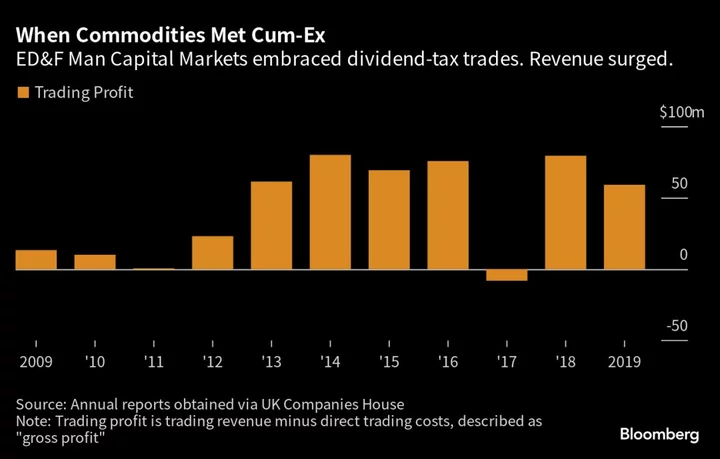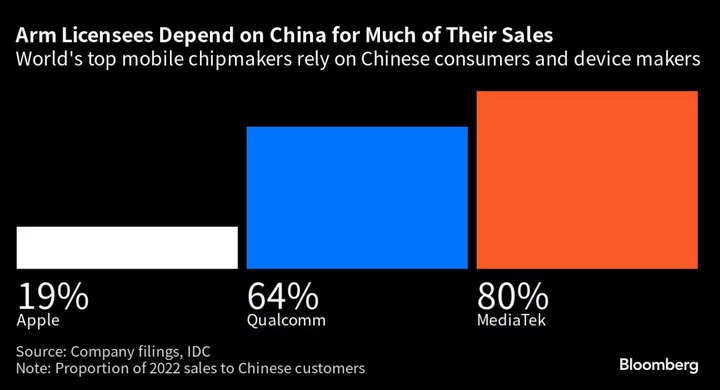President Joe Biden said the US was experiencing a surge in manufacturing that was delivering higher wages to American workers as he sought to improve his standing on the economy with skeptical voters.
“We’ve attracted over a half a trillion dollars in private investment in manufacturing in America, industries of the future,” said Biden during a visit Friday to an Auburn Manufacturing Inc. factory in Maine. “We’re seeing a factory boom.”
Biden cited figures showing that investment in manufacturing construction just had its single largest contribution to the nation’s economic growth in more than four decades, contributing 0.4 percentage point to better-than-expected GDP growth in the second quarter — a development economists attribute in part to the president’s policies.
Biden has grown increasingly frustrated that he’s not getting enough credit for the manufacturing rebound, according to people familiar with his thinking. That frustration has led to outbursts from the president directed at top aides, the people said, speaking on condition of anonymity to discuss private conversations.
Through the press office, eight senior White House officials including Chief of Staff Jeff Zients, National Economic Council Director Lael Brainard, and senior adviser Anita Dunn denied that Biden had expressed frustration over the messaging effort around his manufacturing record.
Biden has been crisscrossing the country to highlight his economic agenda of “Bidenomics” and reverse polling that shows voters dislike his handling of the economy.
Biden signed an executive order intended to incentivize manufacturing of US inventions domestically, particularly when breakthrough products are developed using taxpayer dollars. The order will call on the government to modernize an interagency reporting system for research and development investments, and standardize a waiver system companies can use to manufacture subsidized inventions outside the country.
The Auburn factory, which produces heat-resistant fabrics, earlier this year won a legal battle with Chinese competitors — offering Biden a backdrop against which to tout his broader initiative to compete with China, the US’s chief economic rival.
“America used to lead the world in manufacturing and we’re doing it again,” Biden said.
Manufacturing Boom
Increased investment in manufacturing under his watch is a point of pride that Biden hopes will appeal to Americans who’ve been disenchanted by jobs ceded to Asia, where companies have taken advantage of cheaper labor.
“It’s a huge increase in manufacturing capital investments,” said Joe Marchetti, president of Marchetti Development, a commercial real estate company that just completed work on 1.5 million square feet of industrial space in Richmond, Virginia. “In my opinion, it’s been very robust.”
Read more: US Factory Building at Record High Delivers Big Boost to Growth
Biden’s policy parallels that of his top political opponent, former President Donald Trump, who made his “America First” agenda a central pitch to voters, particularly in the Midwest. Trump leads the 2024 GOP field by a wide margin in polls.
Economists have credited Biden’s policies — including the Chips and Science Act and the Bipartisan Infrastructure Law — with boosting growth in the private sector through federal subsidies.
Yet polling shows Americans unhappy with the state of the economy, a reality weighing on Biden’s overall approval ratings. Only 37% of Americans approve of Biden’s handling of the economy, according to a July CNBC All-America Economic Survey. In a bright spot for Biden, the president’s economic approval rating improved slightly in July, up 3 points from April, mostly driven by gains from Democratic voters, the poll shows.
Encouraging News
In welcome news for the administration, Federal Reserve Chair Jerome Powell this week said staff economists called off a months-long prediction that the US would experience a mild recession this year, soothing concerns that recent growth could be too-good-to-be true.
Inflation, once Biden’s biggest political liability, has now cooled for a year straight. Supply chain issues have eased, and wage gains have risen, even for hourly workers.
Despite continued positive economic news, “it’s going to take some time for people to be convinced that this is a permanent new paradigm,” Democratic Senator Chris Murphy of Connecticut said at a virtual event with the Roosevelt Institute. “They still want more proof.”
--With assistance from Justin Sink, Hadriana Lowenkron and Ryan Teague Beckwith.


